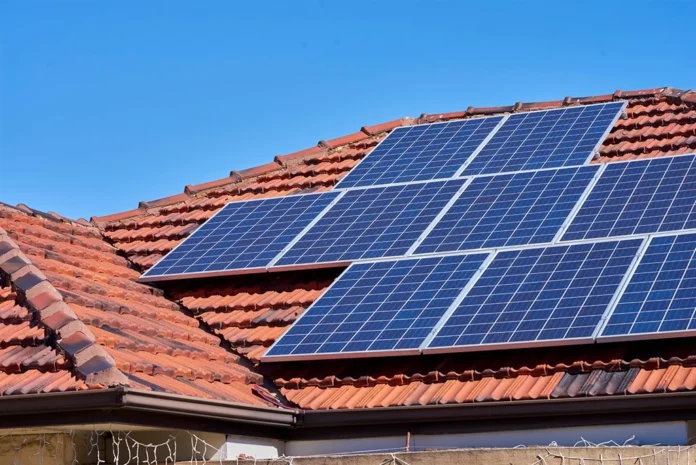South Africa is grappling with a worrying trend: the theft of rooftop solar panels is escalating rapidly, mirroring the country's broader crime surge. Homeowners, already burdened by the ongoing energy crisis, now face significant financial losses and security concerns as criminals target these valuable installations.
The South African Police Service (SAPS) paints a stark picture; between April and June 2024, a staggering 34,075 home burglaries were reported – that's roughly 379 incidents each day. This represents a significant increase in property crime, with Gauteng bearing the brunt, accounting for the majority of these burglaries.
This rise in solar panel theft is directly linked to South Africa's prolonged load shedding crisis. The crippling power cuts of 2023, caused by Eskom's struggles with ageing infrastructure, corruption, and plant breakdowns, forced many homeowners to invest in solar energy for independence. This led to a massive surge in residential solar installations, with South Africa importing a phenomenal R17.5 billion worth of solar panels by the start of 2024. This increased demand inadvertently created a lucrative target for criminals.
The appeal of solar panels to thieves extends beyond their ability to generate electricity. Rodney Taylor, managing director of Guardian Eye, previously highlighted the high value of the panels' components on the black market. "The components of solar panels—such as silver, aluminium, and copper—are highly valuable on the black market," he explained. This high resale value makes them a prime target for organised crime. The combination of high demand, rising electricity costs, and the inherent value of the panels' materials has fuelled this theft epidemic.
Criminals are becoming increasingly sophisticated in their methods. They often disable security systems or target remote areas with less monitoring. In rural or suburban settings, thieves typically operate under the cover of darkness, utilising tools to quickly and efficiently detach panels from rooftops. The theft often isn't limited to the panels themselves; solar inverters and batteries – crucial components for storing and converting solar energy – are also frequently stolen, leaving homeowners with incomplete and costly-to-repair systems.
The problem's severity has prompted innovative solutions from some manufacturers. One Eastern European company, for example, now produces panels specifically for the South African market that appear superficially damaged, making them less appealing to thieves. Despite a temporary reprieve from load shedding in 2024, energy analysts predict continued growth in solar energy demand as electricity tariffs continue to climb. Since 2007, Eskom's tariffs have increased by a staggering 927%, with further hikes anticipated. Homeowners are expected to increasingly rely on solar power not only to mitigate power outages but also to offset soaring electricity costs. This unfortunately means the demand for solar installations, and consequently the risk of theft, is likely to persist.
To combat this growing threat, homeowners can implement several preventative measures. Installing surveillance cameras and motion-sensor lighting around their properties is a highly effective deterrent, alerting homeowners to suspicious activity. Using tamper-resistant hardware for mounting solar panels makes removal significantly more difficult. Securing inverters and batteries in locked enclosures protects these valuable components. Integrating solar systems into a comprehensive home security plan, combining alarms, surveillance, and physical barriers like security gates or fencing, creates a robust defence. Finally, some insurance policies now offer specific coverage for solar equipment, providing financial protection in case of theft.
The geographical distribution of burglaries across South Africa reveals a concerning pattern. Gauteng, the most populous province, accounts for the lion's share of home burglaries (21.4%), which is proportionally expected given its population density. Conversely, the Northern Cape, the least populated province, reports the lowest number of burglaries (3.5%). However, the problem extends across the country; almost every province features in the 'top 10 worst areas' list, with Mankweng in Limpopo leading the way in reported break-ins, followed by Plessislaer and Inanda in KwaZulu-Natal. This widespread nature of the problem underscores the urgent need for a multi-faceted approach involving law enforcement, manufacturers, insurers, and homeowners themselves to tackle this escalating crime trend.










